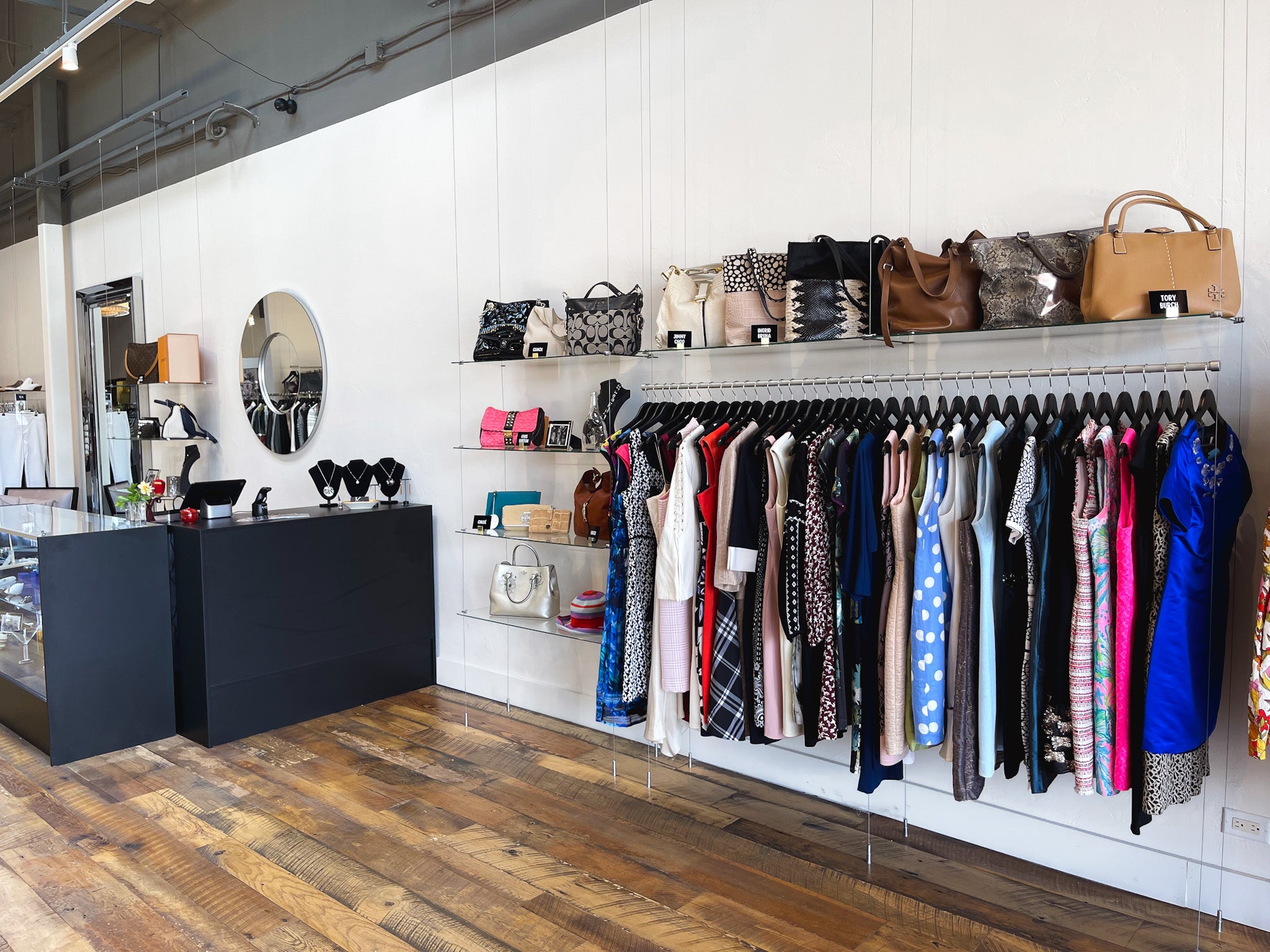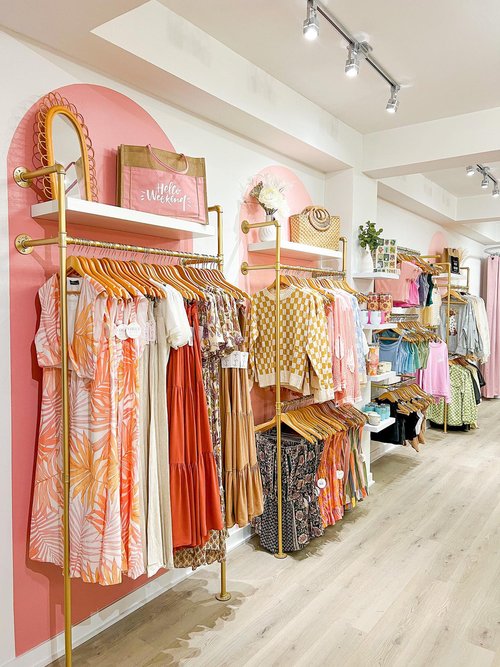Discovering the Development and Effect of Clothing on Modern Style Trends
The advancement of garments has dramatically influenced modern-day style trends, merging historical criteria with cutting-edge innovations. Renowned figures like Coco Chanel and Yves Saint Laurent transformed the fashion sector by presenting ideas that prioritize convenience and ease of access, which continue to resonate today.
Historic Style Influencers
In the tapestry of fashion background, specific figures have actually left an enduring mark, shaping the fads and styles that define entire periods. Coco Chanel, an advanced designer, redefined ladies's style by introducing comfortable, sophisticated clothes that left from restrictive corsets.
Elsa Schiaparelli is an additional pivotal figure, renowned for her avant-garde designs that included surrealist art, working together with Salvador Dalí to develop wayward items that tested conventional aesthetic appeals. Her ingenious use color and vibrant patterns reverberates in contemporary fashion. Yves Saint Laurent, at the same time, democratized high style with prêt-à-porter collections, bringing runway styles to the masses and establishing a precedent for modern ready-to-wear lines.
These enthusiasts, among others, not only transformed style in their times but additionally set withstanding fads that reverberate in today's apparel industry, supplying a foundation whereupon contemporary developers remain to introduce and construct. Their traditions underscore the value of imagination and daring in fashion's ever-evolving story.
Technological Advancements in Fashion
Amidst the vibrant landscape of the fashion business, technological developments stand at the forefront of development, reshaping exactly how designers produce and consumers involve with fashion. The integration of 3D printing has actually revolutionized style processes, allowing designers to trying out complicated frameworks and lasting products that were previously impossible. This modern technology helps with rapid prototyping, decreasing waste and accelerating production times.

Smart fabrics, embedding innovation into materials, are likewise transforming the market. Technologies like temperature-regulating and self-cleaning textiles provide boosted functionality and comfort. Wearable modern technology, incorporating features like physical fitness monitoring and communication, adds a brand-new measurement to fashion, merging aesthetics with functionality.
Cultural Changes and Design
As technological advancements continue to reshape the fashion market, social changes are equally prominent, redefining style and customer choices. In recent years, the rise of social media platforms has sped up the circulation of worldwide fashion patterns, enabling diverse cultural influences to coexist and merge. This electronic interconnectivity has actually facilitated the rapid exchange of concepts, bring about an extra inclusive and eclectic interpretation of style that reflects the multifaceted nature of modern-day culture.
Cultural understanding and gratitude have motivated developers to draw ideas from a more comprehensive range of ethnic and historic contexts, incorporating typical themes with contemporary appearances. This combination has resulted in style that resonates with a wider target market, promoting a sense of identification and belonging across different demographics. In addition, the boosting demand for customization has driven brand names to use adjustable options, making it possible for customers to express originality while showing their cultural heritage.
In addition, changing social values have actually affected fashion, with inclusivity and variety becoming main styles. The market has browse around this site actually started to embrace designs and influencers of numerous body types, ethnicities, and sex identities, tough conventional elegance standards. This change underscores the power of cultural changes fit the future of style, as design ends up being an extra authentic expression of collective and personal identification.
Sustainability and Modern Design
While the fashion business remains to progress, the crucial for sustainability has actually ended up being significantly urgent, affecting modern-day layout practices. This change intends to deal with moral factors to consider and environmental worries, bring about a reevaluation of conventional manufacturing approaches. Developers are now integrating sustainable materials, such as natural cotton, recycled polyester, and biodegradable materials, right into their collections, lowering the ecological footprint of fashion. The rise of sluggish style, which highlights top quality over amount, urges consumers to purchase timeless pieces rather than transient patterns.
Moreover, contemporary design is characterized by its development in reducing waste and promoting circularity. Techniques such as zero-waste pattern cutting and 3D knitting are gaining grip, permitting developers to produce garments with minimal fabric wastefulness. Furthermore, brand names are embracing transparent supply chains, ensuring responsibility and promoting consumer count on. This approach not just alleviates environmental impact yet likewise enhances the social duty of style homes.

Future Trends in vogue

Sustainability will continue to be a driving pressure in shaping future style patterns. The sector is progressively adopting environmentally friendly materials and honest production methods, reacting to a growing customer demand for liable practices. Innovations such as bio-fabricated products and closed-loop recycling systems are readied to redefine exactly how garments is generated and consumed, lowering ecological impact while preserving style and high quality.
Social shifts, consisting of the rise of inclusivity and variety, will certainly likewise play a crucial role. As culture becomes more conscious of social issues, fashion is anticipated to become a platform for expression and adjustment. have a peek at this website Designers will likely focus on developing collections that reflect a wider variety of experiences and identities, promoting representation and ease of access.
Final Thought
The evolution of apparel significantly affects contemporary fashion fads, where historical impacts merge with contemporary styles. Key figures like Coco Chanel and Yves Saint Laurent have redefined style, while technical technologies such as 3D printing and smart textiles expand innovative opportunities. Social changes in the direction of inclusivity and sustainability compel brand names to accept and embrace honest methods variety. This recurring advancement emphasizes style's duty as a mirror to social worths and technical development, suggesting a future rich with advancement and inclusivity.
The development of clothes has significantly influenced modern-day fashion trends, combining historic criteria with innovative advancements.In the middle of the dynamic landscape of the style market, technological advancements stand at the center of advancement, reshaping how designers produce and consumers involve with fashion.While the fashion sector continues to evolve, the necessary for sustainability has become significantly urgent, affecting contemporary design techniques. As sustainability becomes ingrained in contemporary layout, it paves the way for an extra accountable and aware style industry.
The advancement of clothes dramatically affects modern style trends, where historic influences combine with contemporary styles.